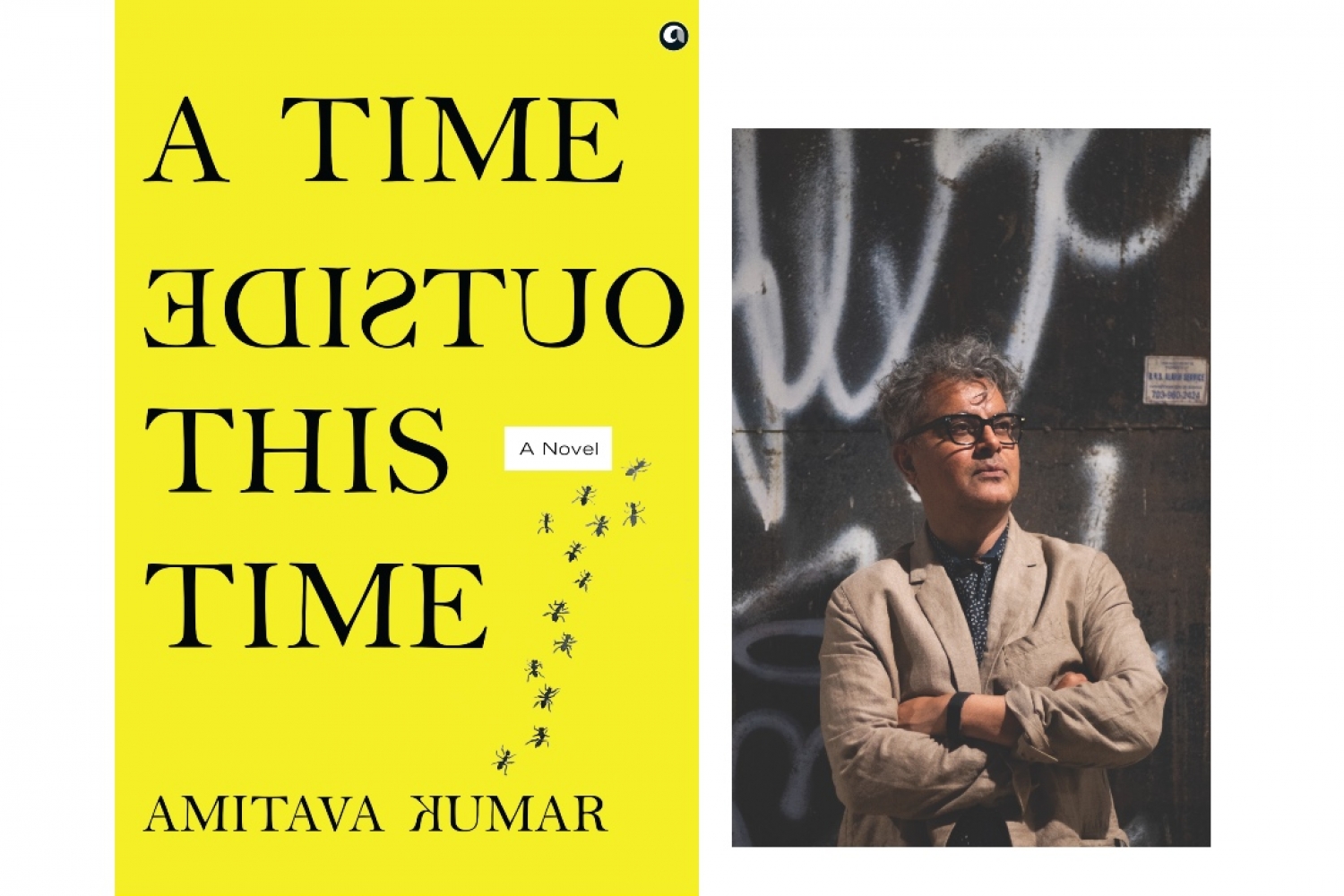
Image: Imrul Islam.

Image: Imrul Islam.
We’re living in the age of infobesity. As our current social and political milieu is inundated with information, it also gives way to the contraptions of misinformation. Myths dangerously become facts. Amidst all the upheaval, how and why does one write fiction? Amitava Kumar’s recently released book, A TIME OUTSIDE THIS TIME, explores this question as its protagonist delves into writing a book about fake news while the world begins to get engulfed by the pandemic and many other disasters. And this exploration, rightly so, leads to more pressing questions about what is truth in a post-truth world. ‘You will have to read my book to find that out. I’m not going to make it easy for anyone,’ declares Amitava Kumar when I ask him the preceding question.
More excerpts from our interview with the author follow:
When did you first realise language and literature had power?
It was a discovery I made in my teens. The sense that I could find words to describe the world around me. Sitting in a crowded DTC bus became a different experience if I could form a sentence about what was in front of my eyes.
What inspired A TIME OUTSIDE THIS TIME and what is at its core?
The rise of #fakenews on social media. It made me ask how literary fiction could respond to the bad fiction that is fake news. We tell lies, big and small, all the time. What are the lies we routinely tell ourselves about others in our society? I think that is at the core of the book.
In my interview with author Anindita Ghose earlier this year, she told me that, “In the current climate, I strongly believe fiction is a more honest vehicle for truth-telling than journalism.” Do you believe the same?
I think there are writers of honest fiction and writers of dishonest fiction in the same way that there are good journalists and bad journalists. In each field you have those who propagate myths and others who fight them.
Can fiction overcome the distractions media creates today?
No, it cannot overcome distractions necessarily; but a good book offers you refuge from that relentless assault on your attention.
What were some of the influences behind this narrative’s creation?
All art exists in conversation with writing that came before it. I also had more immediate influences inspiring me. In a book called CRUDO, by Olivia Laing, the guests at the wedding are talking about Donald Trump. One person announces that Steve Bannon has resigned. I liked the immediacy of fiction reporting on current news.
I read George Orwell in school in Delhi. Also writers like Khushwant Singh and Anita Desai. In later life, the journalism of Joan Didion and Janet Malcolm. My roots are in Bihar and in this novel there are reports also from the hinterland.
What was the biggest challenge you faced with this novel?
The biggest challenge a fiction writer faces is that the world, the world of real news, keeps throwing up stories that defy the imagination. My narrator struggles to keep up with the news, especially as the pandemic advances and takes over the world.
What do you hope the readers take away from the book?
A more felt sense of what it means to be alive today. And maybe also the courage to tell stories about our times.
How have you been coping with the pandemic personally, and as a writer?
The discipline I had cultivated as a writer also helped me cope with the pandemic. I wrote and I painted. I also have my duties as a teacher and as a parent.
Lastly, what are you working on next?
The horrors have not ceased. Lies — and liars — continue to flourish. Our work is not done.
Text Nidhi Verma
Date 22-10-2021